|
The first in an endless row of the Grateful Dead's trademark double live
albums and one of the best-loved ones. Tired of mimicking their live craft
in the studio, or, at best, interpolating live stuff with pointless studio
overdubs, the Dead finally agreed here to follow the usual way and split
into a 'live band', putting out their real live experiences, and a 'studio
band', putting out well-crafted studio recordings. Not that the two sides
of the band wouldn't ever be meeting from now on, but for the most part,
all of the band's acid excesses were now left on genuine live albums.
Like this one.
If you find out you hate the album, don't despair. It's certainly not
for everybody. But let me tell you this, brothers and sisters - there
is a way to enjoy the album, and the way lies in the album's incredible
diversity. Oh well, wait a bit, it's not actually that diverse, because
it's the Grateful Dead after all, and they don't do no Roy Wood kind of
freakshow; they got their own. But what strikes me on here is that none
of the seven tracks actually sound similar; all follow slightly different
patterns, and you get to witness the Dead in all kinds of 'environments'
- it's not just the notorious "acid jams" that you're gonna
get, but rather a vast palette of styles and moods. I doubt that anybody
but the most loyal Deadheads would enjoy the record in its entirety, though;
most probably, you won't like all of these styles, and even I certainly
don't. What good is there still makes the record well worth owning, though.
Actually, there's only one "acid jam" on there, the massive,
epic 'Dark Star' that opens the album. This is a number you have to get
used to, but you know - you have to get used to it. An excellent amalgam
of blues and jazz, all mostly played in a minor key for further moodiness,
it showcases Garcia at his very, very best. Frankly speaking, I really
don't know how it is theoretically possible to play all these twenty-minute
solos without dropping dead at the end. The only person I know who's capable
of doing that is Clapton, and we all know that Clapton is God, now don't
we? But truthfully, Jerry's masterful and atmospheric passages on 'Dark
Star' are quite comparable with some of Clapton's best jams in Cream.
Particularly impressive is the moment when Jerry goes 'duelling' with
Bob Weir and the entire band just goes crazy without you even noticing
it - everything is so smooth and well-controlled that even in the very
middle of this endless jam they can still take you by surprise.
Exhausted on that one, the band rips into an inspired rendition of 'St
Stephen', completely obliterating the studio original. It's one of the
shorter tunes on here, but also one of the tightest and most easily accessible
- it's just a folksy little chant, after all. Then the band goes really
raunchy and rockin' on the stomping jam 'The Eleven', where they are faster
and angrier than anywhere else on the album. Then there's time for about
fifteen minutes worth of goofiness: Pigpen steps in with an exaggerated,
schizophrenic rendition of the old R'n'B song 'Turn On Your Lovelight'.
Then they get into 'blues mode', playing a lengthy, drawn-out, bleeding
little blooze number appropriately called 'Death Don't Have No Mercy'.
Then things get weird again, with a lengthy, drawn-out, bleeding little
noisefest appropriately called 'Feedback'; and after abusing our ears
for so long, the Dead close with a few farewellish vocal harmonies ('And
We Bid You Goodnight'). Whatever the actual length of these pieces might
be, you at least gotta give them their due - they're not overexhausting
our patience. Well, not my patience, at least. My patience has learned
how to stretch itself out through the long years full of hardship and
toil and listening to too much Captain Beefheart. My patience is cool
and relaxed; what about your patience, dear Sir?
That said, patience is one thing, and pure enjoyability is another. Like
I said, you probably won't like every style they tackle. Listen to me
now. Me - I can easily tolerate 'Dark Star', because it's really dark
and really trippy and really takes you places, all the time never stopping
you from tapping your foot and keeping within the groove. And I can easily
tolerate 'St Stephen', and to a lesser extent, 'The Eleven' and 'Death
Don't Have No Mercy': the latter might be just ten minutes of generic
blues, but it sets such a creepy, somber mood, that I take it. However,
I just can't understand the very meaning of 'Turn On Your Love Light'.
My hypothesis is that it's just Pigpen fooling around and trying to kill
time or something. I mean, take something like the Stones' 'Goin' Home',
throw out the cool guitar lines and the exaggerated, hilarious vocals,
throw in a drunk unfunny clown and you guarantee yourself some prime boredom.
Likewise, I won't accept anything like 'Feedback' in my world. If you
want something really noisy and messy, go listen to Amon Düül
II and spare yourself all that American feedback psychedelia crap. Even
if you deem such things to be 'mind-liberating', there simply were lots
of bands doing the noise schtick much better.
With all these faults, it's obvious I can't grant the album a maximum
rating; even so, let's at least not forget that it's a double one and
they managed to fit it all on one CD, so you can just disregard the twenty
five minutes of stupid filler and concentrate on the fifty minutes of
the really interesting stuff. Simply put, I highly doubt that in the America
of 1969 there ever existed a band capable of producing something like
'Dark Star' on the stage. Certainly not Quicksilver Messenger Service,
who took their 'professional' duties far lighter than the Dead. And definitely
not the Airplane, as Jorma Kaukonen never had the ace guitar skills of
Garcia; besides, whenever that band entered 'jam mode', it was like they
rather were playing 'lightweight pothead' music, while the Dead were playing
'serious pothead' music. Feel the difference? Hey, you don't really NEED
to be a pothead to feel the difference!
(by George Starostin,
Only Solitaire)
|
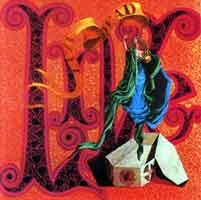
 Inselplatte #9 in Jahresliste
Inselplatte #9 in Jahresliste  Plattentipp
Plattentipp 






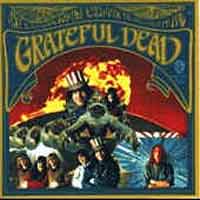
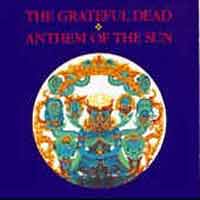
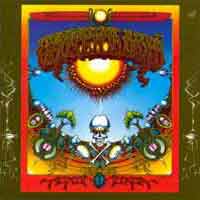
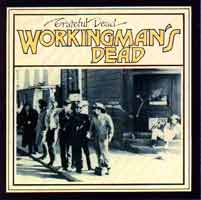
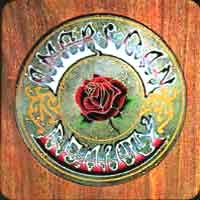
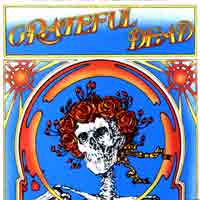
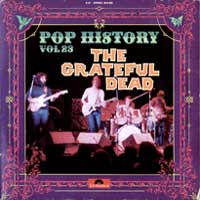
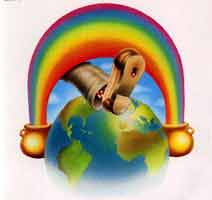
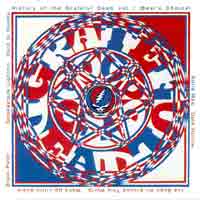
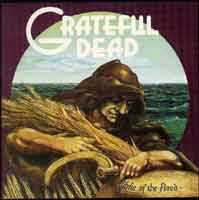
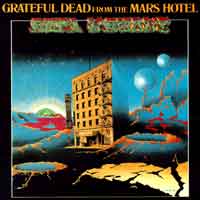
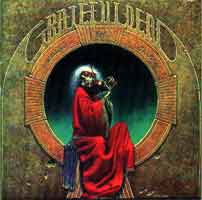
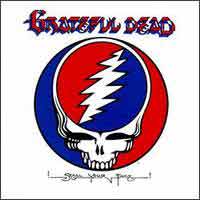
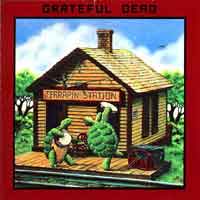
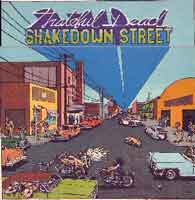
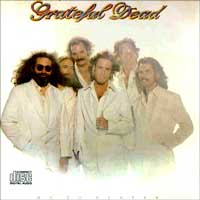
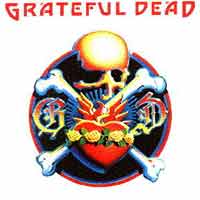
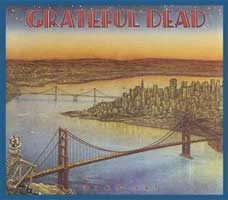
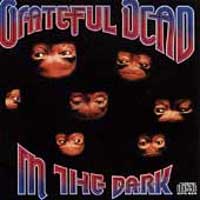
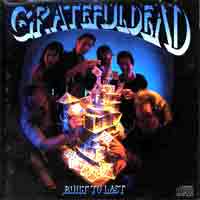
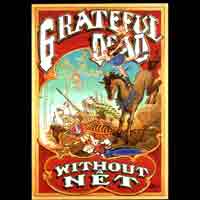
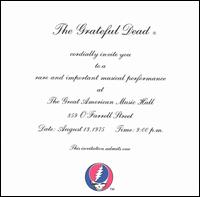
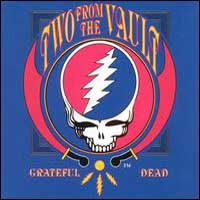
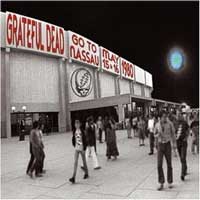
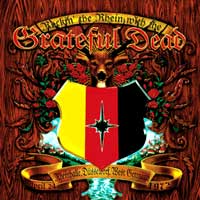
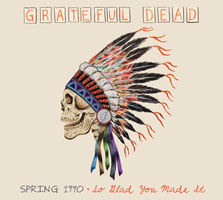
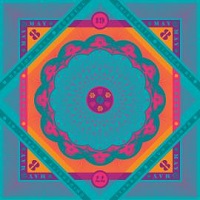
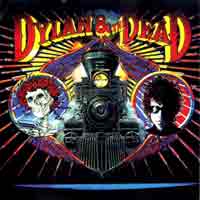
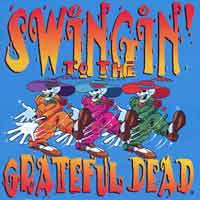

 #242 Virgin/Colin Larkin(2000)
#242 Virgin/Colin Larkin(2000) eins von 1001 Alben, die Ihr hören solltet, bevor das Leben vorbei ist! (2008)
eins von 1001 Alben, die Ihr hören solltet, bevor das Leben vorbei ist! (2008)  Grateful Dead
Grateful Dead 